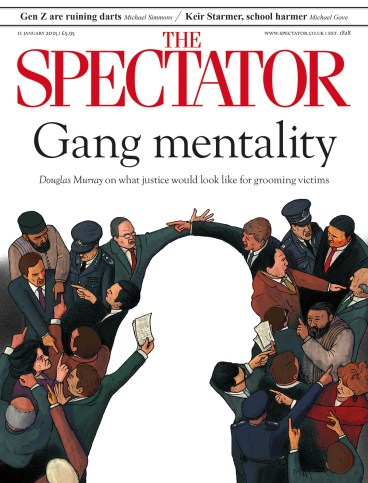
In 1948, Natalia Ginzburg, then an editor at the Italian publishing house Einaudi, received an 800-page brick of a manuscript from an acquaintance, Elsa Morante. Ginzburg read it in one sitting and declared Morante was going to be ‘the greatest writer of the century’. More recently, Elena Ferrante credited Morante with showing her ‘what literature can be’.
The book that produced such praise – Italo Calvino called it ‘a serious novel, full of living human beings’ – has gone by different names in English: House of Liars or, in this new edition published by Penguin Classics and NYRB Books, Lies and Sorcery. Narrated by the semi-autobiographical ‘Elisa’ (a ‘nun-like recluse’ who spends her days in indolence surrounded by ‘phantoms’ – the characters of her story), the book spans three generations of Sicilian women as they struggle through bad marriages, dire poverty and unshakeable pride.
A translation was published in 1951 with lines, scenes and whole chapters cut. Morante was devastated, and called the edition a massacre. It is shocking that no alternative has appeared until this version by Jenny McPhee – but part of the reason might lie in just how bewildering the novel is. Written in the last years of the second world war when both Morante and her husband, the novelist Alberto Moravia, were in hiding, due to their Jewish heritage, the book sidesteps the political realism of much of the rest of 20th-century Italian literature.
In place of the horrors of fascism are carriages and palaces; instead of battles there are skirmishes of honour. It trades literary realism for an altogether more elusive, elliptical mode. Elisa as narrator continually inserts herself into the story, reminding us that what we read is her own ‘outlandish epic’. She has the power to reveal and divulge what she wants, toying with those who might ‘deserve to be my readers’.
The story she fabricates is one which, as the novel’s two English titles suggest, depends upon lies: their ‘poisonous evil’ which ‘slithers’ down her family tree. Each and every character plays a version of themselves which is not quite true: devoted lover, ‘saint’, ‘grand duke incognito’, distinguished baron instead of peasant farmer. The results are tragic – and hilarious: mismatched marriages, lives constructed on false pretences, broken hearts.
There’s more realism in this than Elisa would like to admit. Lies and Sorcery is a story of honour, deception and class politics, but more than anything it’s a study of morality and the petty ways in which it is eroded. With its attention to human foibles, the book is nothing short of a triumph: a fairy tale of epic proportions and a rightly rediscovered 20th-century classic.








Comments